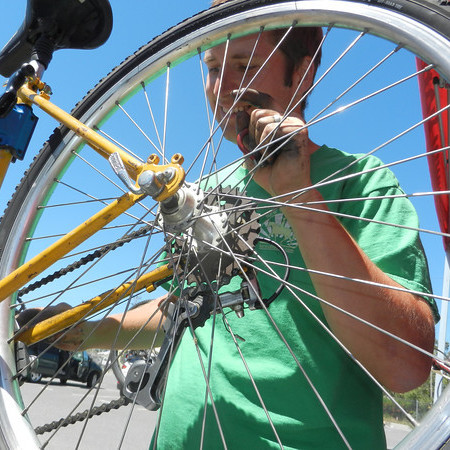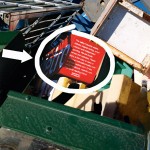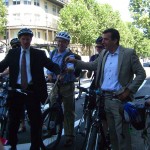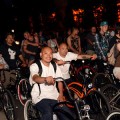The non-profit organization, Good Karma Bikes, is reaching out to the homeless community by providing them not only bicycles but also the tools and skills to fix them and apply those skills for future job opportunities.
Good Karma Bikes holds free repair clinics Saturdays for anyone, including homeless and low-income workers, to get their bikes fixed for free with the help of volunteers. They can also fix wheelchairs, strollers and walkers.
Jim Gardner, the founder and executive director of Good Karma Bikes, says the program is designed to help others start a new path to recovery, and the bikes help with that.
Good Karma Bikes also provides bicycles for those in need of transportation, which they receive from donations, university campus impounds and bikes their clients find abandoned in the city. The nonprofit organization then cleans and fixes the bikes. Good Karma Bikes doesn’t accept bikes with bent frames, but they will trade new bikes for those they take.
“If you’re a person of low wage or you’re impoverished, you can’t afford VTA,” Gardner says. “So, what we’re doing, by granting a certain number of bicycles and letting people work to have a bicycle, is we’re giving them the means to go to the people, the places, the appointments and meetings to improve their life.”
The organization also has a 16-week training program that helps those looking for work get certified in bicycle mechanics. After the training program, they can then work in Good Karma Bikes secondhand bike shop and earn the skills needed to look for a job.
In 2011, they had 12 people graduate from the training program and seven of them have become employed. Currently, they have 14 people in their program and already two have found jobs.
In the past two years, Good Karma Bikes has served over 5,300 people
Good Karma Bikes has a volunteer program of about 40 core members. Volunteers get paired with someone who is experienced in bike mechanics, so that they can learn how to fix bicycles and help others.
The current goal for Good Karma Bikes is to offer more transitional employment through their 16-week program for those who are still in the recovery process. Gardner says the nonprofit would like to partner with more local businesses so active members can find employment after being trained.
One thing that Gardner takes prides in, other than helping people, is seeing how well everyone works together at their free repair clinics.
“When you come to our clinic on Saturday,” Gardner says. “You can’t tell who’s homeless, who’s low wage, who’s retired or who’s professional, because there’s no classification, no stratification. We’re all wearing old dirty clothes fixing bikes.”

 Mercury News Caught With Independent Media News Racks
Mercury News Caught With Independent Media News Racks  New Bike Lanes Introduced to Downtown Streets
New Bike Lanes Introduced to Downtown Streets 


